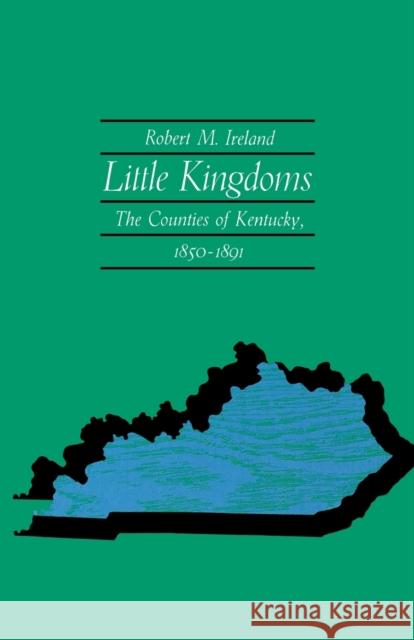Little Kingdoms: The Counties of Kentucky, 1850-1891 » książka
Little Kingdoms: The Counties of Kentucky, 1850-1891
ISBN-13: 9780813153124 / Angielski / Miękka / 2014 / 200 str.
Kentucky's counties though theoretically provinces of the state were in reality powerful semi-sovereign entities during the latter half of the 19th century. Their positive accomplishments were many. Government funds were wisely invested in internal improvements, road construction, law enforcement, tax collection, and relief of the poor. Keen competition for county offices, placed on an electoral basis by the Constitution of 1850, brought added vitality to Kentucky's uniquely intense political life, and the official day on which the county courts met continued to be the foremost social and economic day of the month.Despite these positive facets and the good intentions of the reformers of 1849-1850, however, Kentucky's counties retained a tradition of parochialism, corruption, and inefficiency. The establishment of elective offices eliminated few of the deficiencies of the county system. The railroads were the focus of rivalry and scandal. Prevailing lawlessness compounded the semi-anarchical condition of many of the counties. Rising crime rates rendered insecure the lives of many Kentuckians. Nineteenth-century Kentucky left no legacy of law and order. A grasp of this paradoxical situation is essential to an understanding of late 19th-century Kentucky history. In this probing study, Robert M. Ireland offers the first thorough examination of the impact of Kentucky's counties on the state's constitutional, political, social, and economic development during this period.











